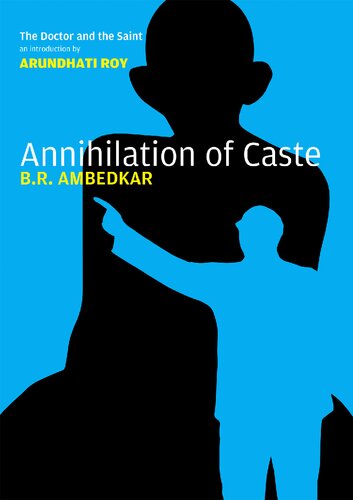

Most ebook files are in PDF format, so you can easily read them using various software such as Foxit Reader or directly on the Google Chrome browser.
Some ebook files are released by publishers in other formats such as .awz, .mobi, .epub, .fb2, etc. You may need to install specific software to read these formats on mobile/PC, such as Calibre.
Please read the tutorial at this link: https://ebookbell.com/faq
We offer FREE conversion to the popular formats you request; however, this may take some time. Therefore, right after payment, please email us, and we will try to provide the service as quickly as possible.
For some exceptional file formats or broken links (if any), please refrain from opening any disputes. Instead, email us first, and we will try to assist within a maximum of 6 hours.
EbookBell Team

4.1
40 reviews
In 1936, a Hindu reformist group invited B.R. Ambedkar to deliver their presidential address and chart a path to end the caste system. When he argued that the immorality of caste was sustained by the Vedas and shastras, and without ‘dynamiting’ them there could be no reform, they withdrew their invitation. Ambedkar published the text on his own. Mahatma Gandhi responded to the provocation. The hatchet was never buried.
This new annotated, critical edition features a comprehensive introduction by Arundhati Roy, who says ‘to ignore Gandhi while writing about Ambedkar is to do Ambedkar a disservice’. This edition generated inevitable questions regarding political representation, caste, privilege, and power in Indian society.
Annihilation of Caste is a breach of peace.
Bhimrao Ramji Ambedkar was born in 1891 into an ‘Untouchable’ family of modest means. One of India’s most radical thinkers, he transformed the social and political landscape in the struggle against British colonialism. He was a prolific writer who oversaw the drafting of the Indian Constitution and served as India’s first Law Minister. In 1935, he publicly declared that though he was born a Hindu, he would not die as one. Ambedkar eventually embraced Buddhism, a few months before his death in 1956.